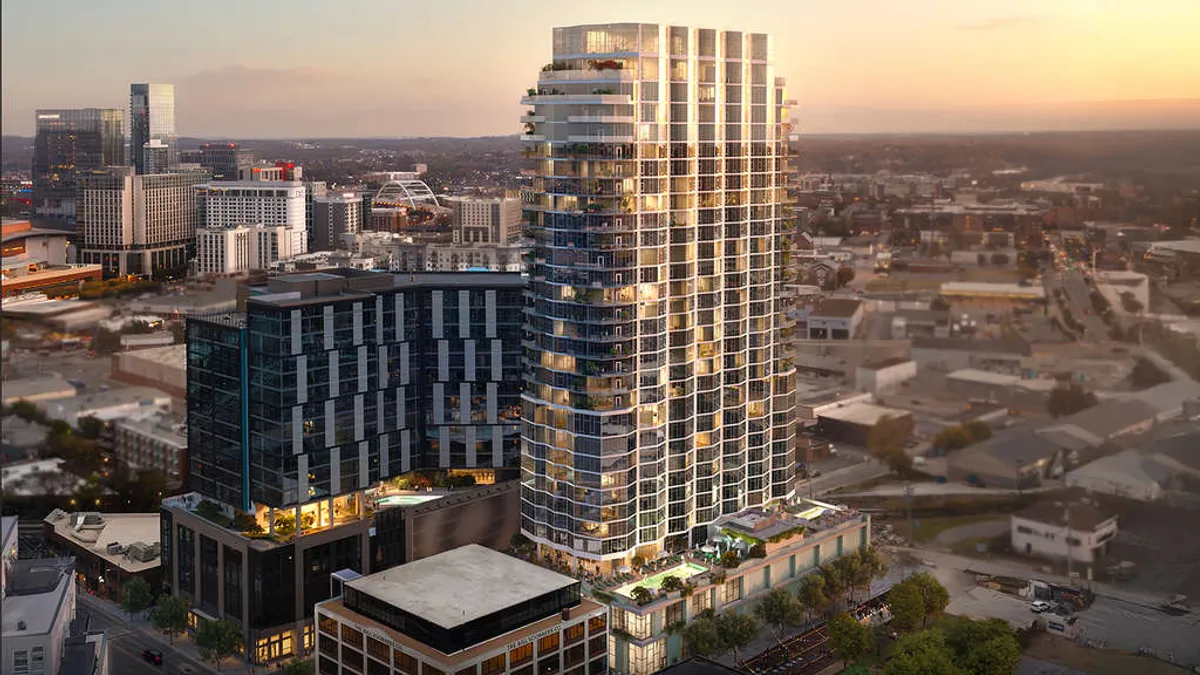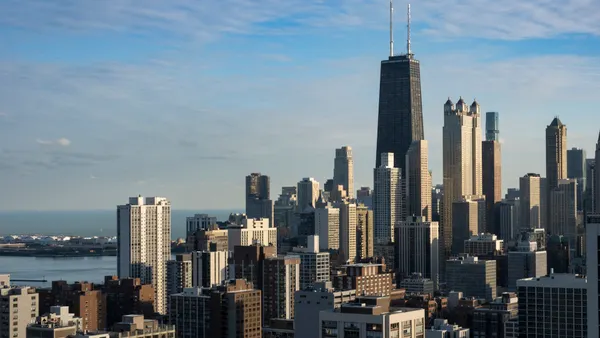Dive Brief:
- Hotel industry growth slowed in the second quarter of 2023, primarily due to a 1.5% year-over-year drop in occupancy, according to a report from CBRE.
- Average daily rate increased by 2.6% year over year — the slowest annual growth since Q1 2021. RevPAR for the quarter ending June 30 increased by only 1.1% year over year.
- The slowdown in growth may be a sign of things to come for the hospitality industry from now through the second half of 2023, as the seasonal downturn starts — something that is in line with other sources’ H2 projections.
Dive Insight:
The rapid rate of industry growth at the start of 2023 seems to be easing, signaling a normalization in terms of hotel performance. According to CBRE Group, the second quarter of 2023 experienced a decline in gains across industry metrics in comparison to Q2 2022 and pre-pandemic levels.
Overall, leisure markets remained the strongest RevPAR performers relative to 2019, with Tampa, Florida, posting the biggest RevPAR gain in Q2 2023 versus Q2 2019 at 32%. CBRE reports that RevPAR did decline in several leisure-focused markets, including West Palm Beach and St. Petersburg, Florida; Savannah, Georgia; and Phoenix.
When compared to 2022, year-over-year RevPAR growth rates of CBRE’s top 10 markets — Houston; Newark, New Jersey; Washington, D.C.; Albany, New York; Kansas City, Missouri; Pittsburgh; Chicago; Omaha, Nebraska; New York City; and Hartford, Connecticut — were all above 10%, with Houston posting the largest year-over-year RevPAR gain at 16%. None of these markets were leisure-focused.
According to CBRE, there was a 1.5% year-over-year drop in occupancy. A recent report from STR revealed that occupancy declines in Q2 were concentrated primarily over weekends, which outperformed in 2022 as “revenge travel” swept the U.S. on Sundays and Thursdays. As more companies return to the office, this trend is expected to continue.
CBRE also found that total reservations fell by 1.2% year over year in Q2 due to decreases in walk-in, phone, group and online travel agency booking channels. Hotel brand websites and apps continued to pick up market share from other reservation channels, with room nights sold in Q2 reaching 112% of the Q2 2019 level.
Although hotel wage growth slowed in June to 5.2%, it still outpaced the national average of 4.7%. But hourly hotel wages were almost $10 lower than the national average for all workers. Job openings per hotel averaged 21 in May, down from 24 a year ago, but above the average of 16 in pre-pandemic May 2019.








